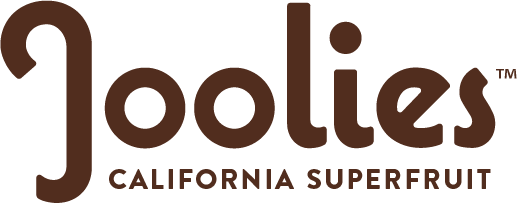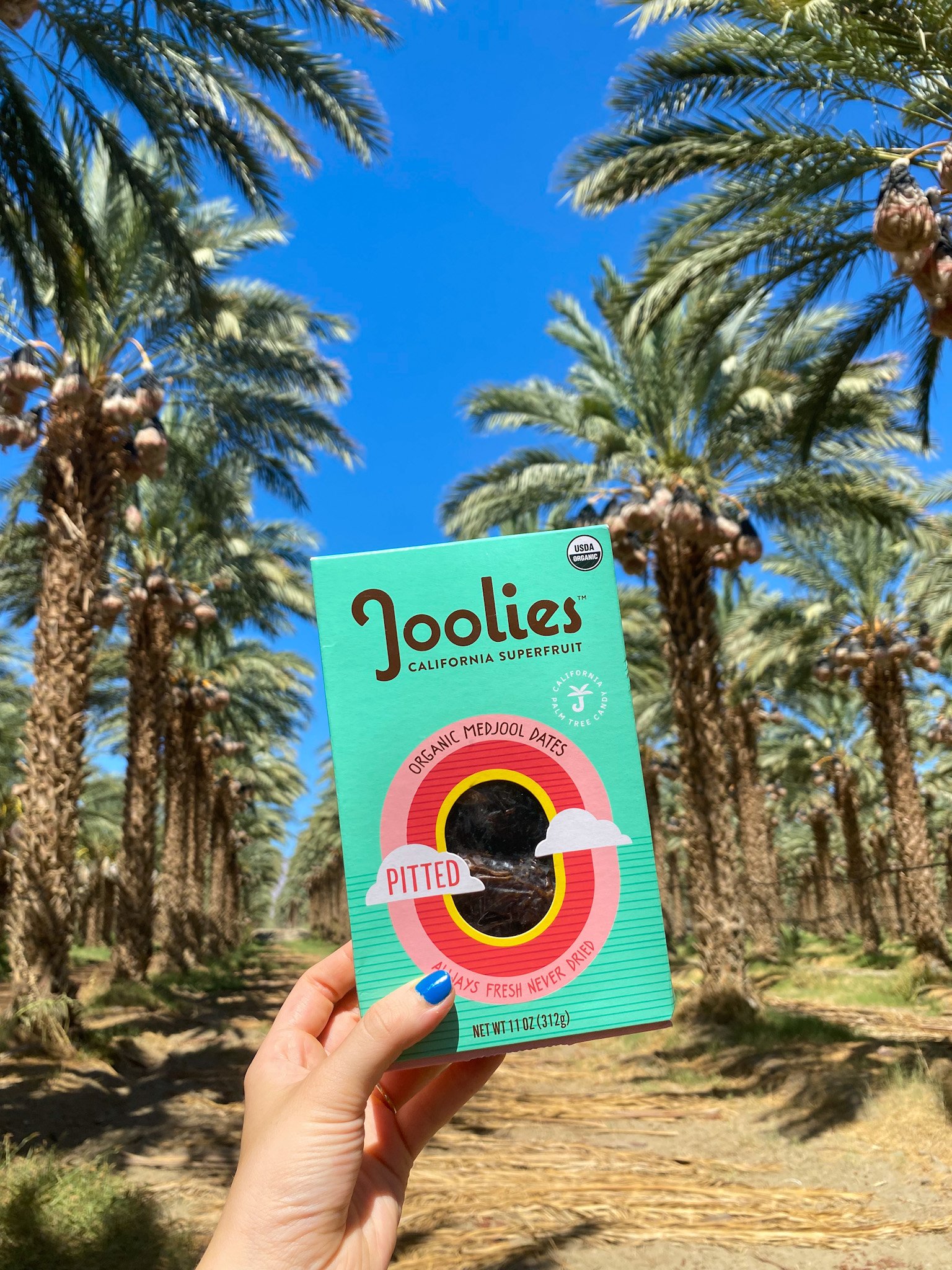Paving the way towards a brighter, greener and more sustainable future, one date at a time.
Don't Settle. Date Sustainably🌴 It may sound *cheesy* but at Joolies, everyday is Earth Day🌎 As a brand that holds sustainability at the heart of our mission, Earth month is especially important to us. You may wonder, "why is sustainability such a big deal in the food industry?" Let's get into it because taking care of our planet is really hot.
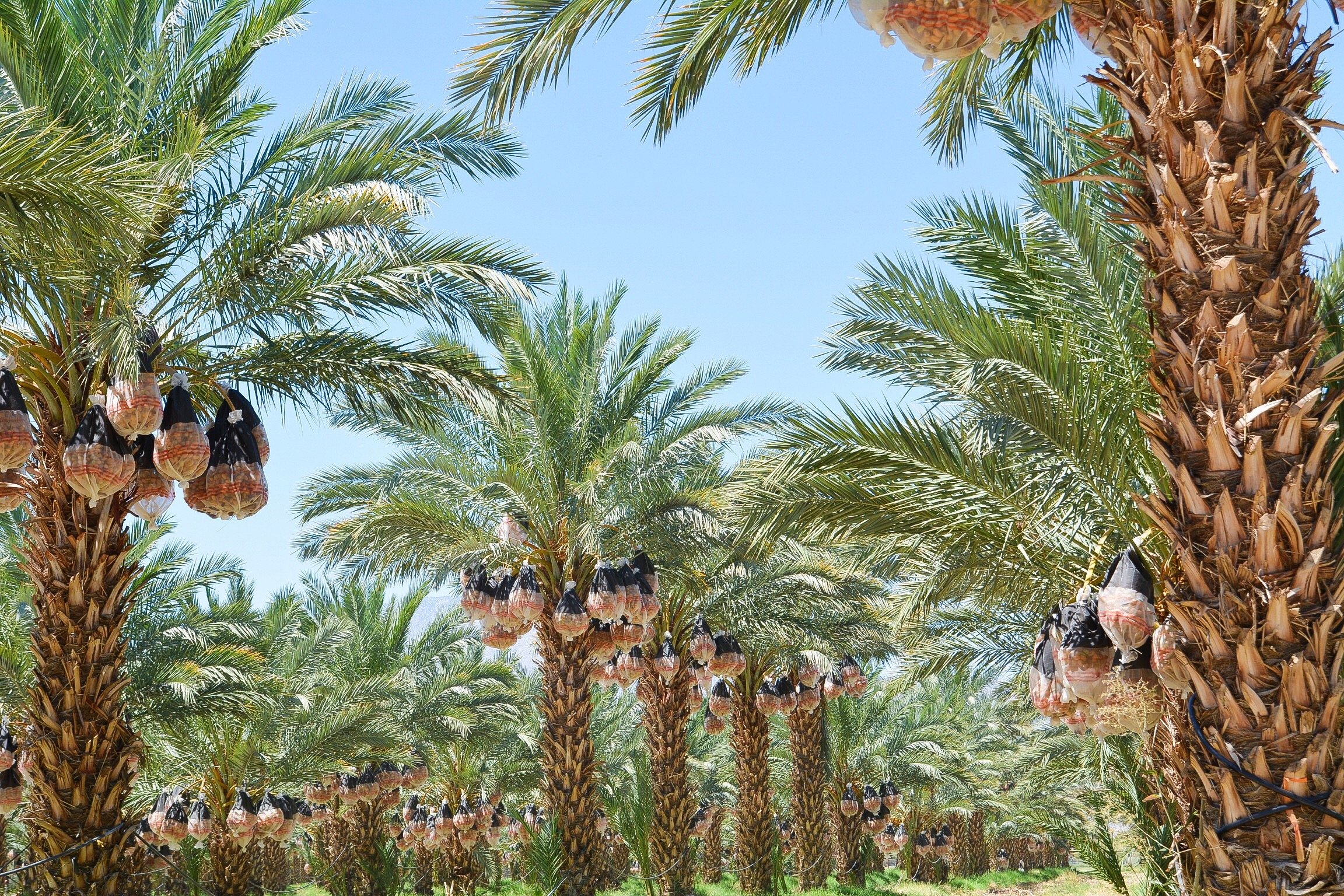
Greenhouse Gas Emissions
The food industry is a significant contributor to greenhouse gas emissions and other environmental impacts, with transportation being the top contributor. The various stages involved in food production--livestock and crop production, processing, packaging, transportation, and disposal--all demand large quantities of energy and resources that have a negative impact on the environment. It's simple physics--for every action there is an equal and opposite reaction (Newton's Third Law). When you take into account the emissions of each stage, the food system attributes roughly 30% of global greenhouse gas emissions. Yet, not all hope is lost because we can lead the shift to a more sustainable food future!
According to a report by the Carbon Disclosure Project, food companies collectively saved over 600 MILLION metric tons of carbon dioxide equivalent (CO2e) in 2019 compared to their baseline year. What the heck does that even mean? Think of it like this: all that carbon dioxide saved equates to taking 131 MILLION cars off the road for a year. That's a lot of cars if you ask us!
Other Environmental Impacts
While greenhouse gas emissions is a main concern, the food system also contributes to deforestation, soil degradation, water pollution, and biodiversity loss. Given the scale of these environmental impacts, it is crucial for food brands to take action to reduce their contribution to climate change. But in turn, we need your help by continuing to demand sustainable and environmentally-friendly products. We as brands cannot afford to ignore the potential risks of losing market share and damaging our reputations by turning a blind eye to the environmental impacts of our industry.
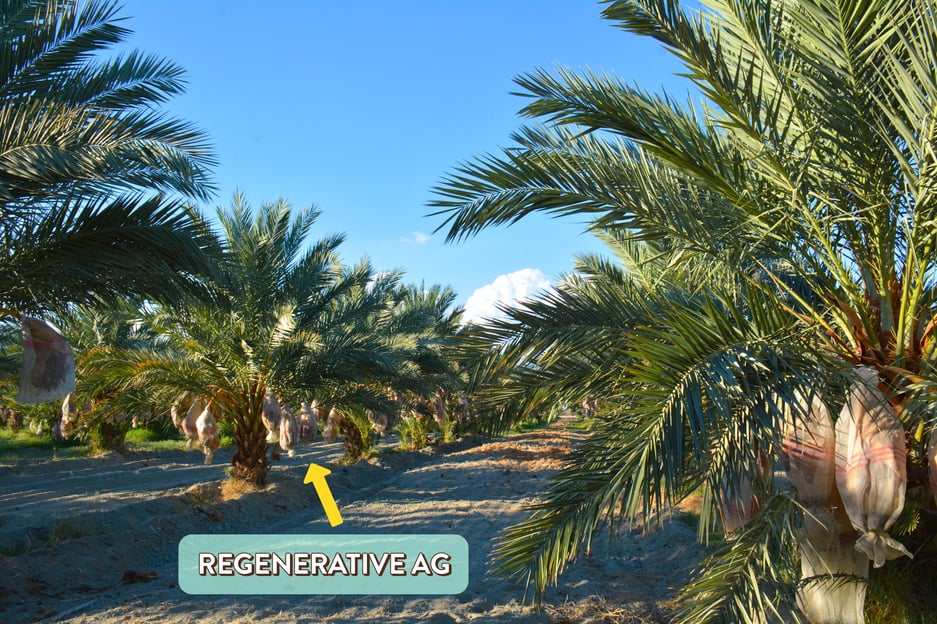
See how short those newer date palm trees are? That's regenerative ag in action at the Joolies date farm!
The Sustainable Solution
Food brands have a unique opportunity to drive positive changes throughout the supply chain. By embracing sustainable practices, promoting plant-based diets, and supporting eco-friendly technologies, food brands can make a huge impact on our planet. Imagine the difference it would make if they invested in regenerative agriculture and renewable energy sources, reducing their carbon footprint and creating a more sustainable food system. In case you didn't know, the Joolies single-origin date farm has been championing regenerative ag since day 1! By implementing regenerative agriculture, we're not only restoring the soil, but also enhancing biodiversity, sequestering carbon and promoting a healthy ecosystem.
And you as a consumer have the power to support these efforts by making sustainable food choices from those brands doing their part to help make a brighter and greener future. Let's take a look under the hood of some trailblazing brands that are putting in the work to be part of the climate change solution.
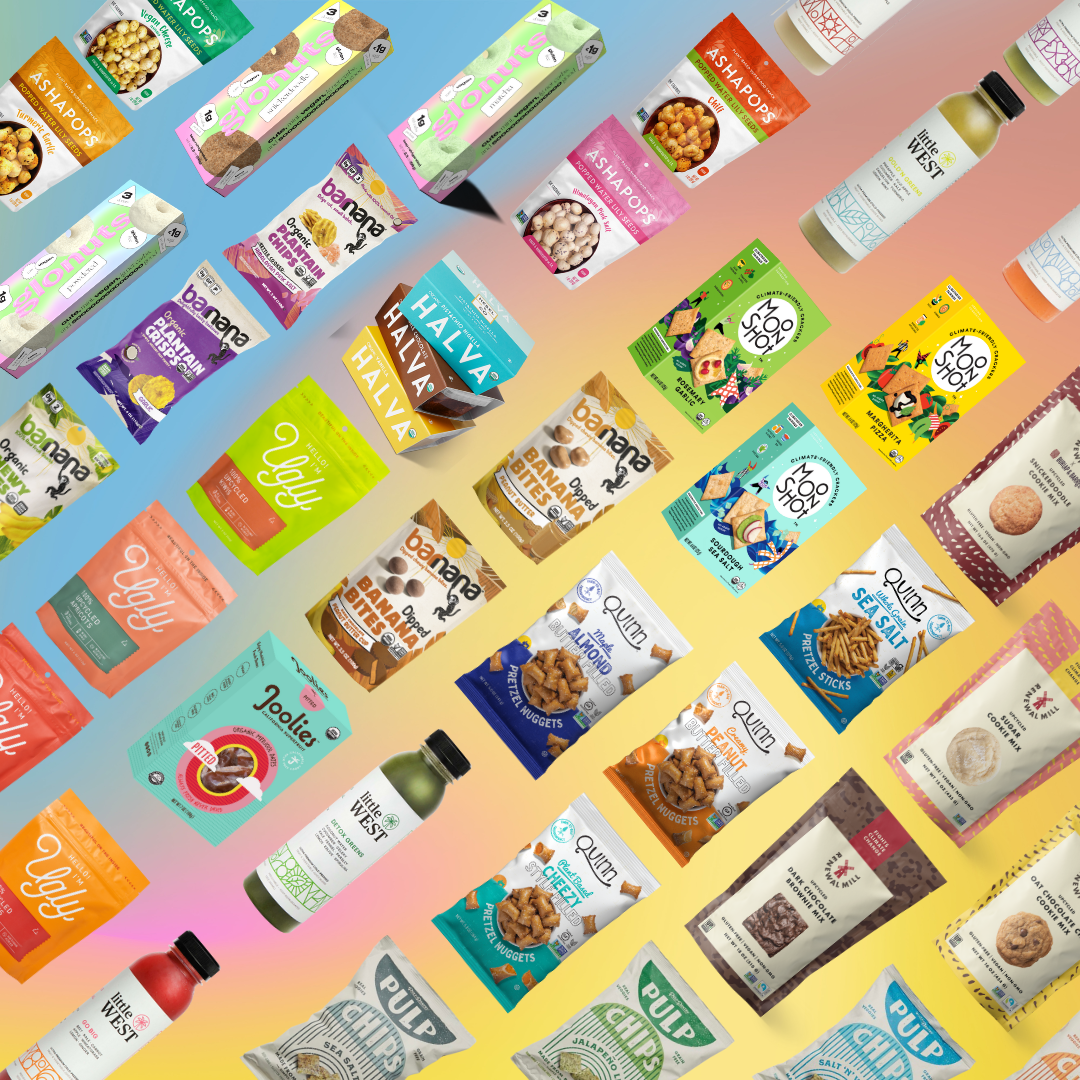
Trailblazing Brands
-
Joolies is changing the date-ing game! We let no date go to waste by upcycling our imperfect, yet equally delicious, medjool dates into value-added products like Ugglies, Date Toppers, Jooliettes, and date syrup. Recently, we have revamped our packaging to use less material, but still post-consumer recycled, helping to alleviate the premium price of our dates, without compromising our commitment to sustainability. Read more about sustainable farming practices and commitments.
-
Challenges: For the past 30 years, Joolies has been growing organic medjool dates on our single-origin family farm in Coachella Valley, CA. Our vibrant brand’s mission is to attract attention for younger generations to eat more dates. We take pride in the fact that all of our products are organic, glyphosate residue-free, and sustainably packaged. But let’s be real, it can and is tough to keep up with big conventional brands on price.
- Barnana snacks are made using delicious upcycled bananas and plantains grown by Indigenous women tending regenerative farms in the Amazon. Snacks that enrich the soil, the people and the surrounding environment just taste better!
- Challenges: It can be tricky to explain to consumers that upcycling delicious organic bananas does NOT mean that we’re using rotten bananas in our product. It just means they would have been wasted downstream because they’re not perfect enough for the produce guys. Not only does this save food from going to landfills where it creates greenhouse gas emissions that contribute to climate change but it also helps farmers make money on their imperfect but delicious crops
- Pulp Pantry fights food waste to fight climate change, by upcycling overlooked ingredients from fruit and vegetable processing into delicious snacks. As such, we elevate food to its highest and best use: nourishing humanity!
- Challenges: In our business, we do need to address the significant costs in dealing with organic materials. There is limited infrastructure in snack food manufacturing to work with fresh ingredients such as the inputs that we utilize. We have run into challenges trying to do something new in a category that is used to business as usual.
- Quinn fights climate change by sourcing from farmers who integrate regenerative growing practices for our sorghum and popcorn kernels. By doing so, Quinn aids the restoration and healing of the earth’s soil while also creating sustainable, allergen-friendly snacks for consumers to enjoy.
- Challenges: Transitioning to regenerative growing practices isn’t the easiest path. Without the use of synthetic chemicals, there is a high risk of crop failure.
- Renewal Mill fights food waste & climate change by upcycling the pulps leftover from making plant-based milks (like soy and oat) into nutritious gluten-free flours and delicious plant-based baking mixes. Together we’re proving that we can collectively bake a better future when we choose upcycled ingredients that reduce waste and our impact on the planet.
- Challenges: In building our brand we've also had to build a market for upcycled food at large. While this has taken a long time, we've banded together with other upcycled brands to share the burden of consumer education - and, after 4 years, we're seeing exciting progress! Our ongoing challenge is how to help consumers understand the real costs behind upcycling that justify higher price points on shelf. To do good for the planet sometimes we have to vote with our dollar.
